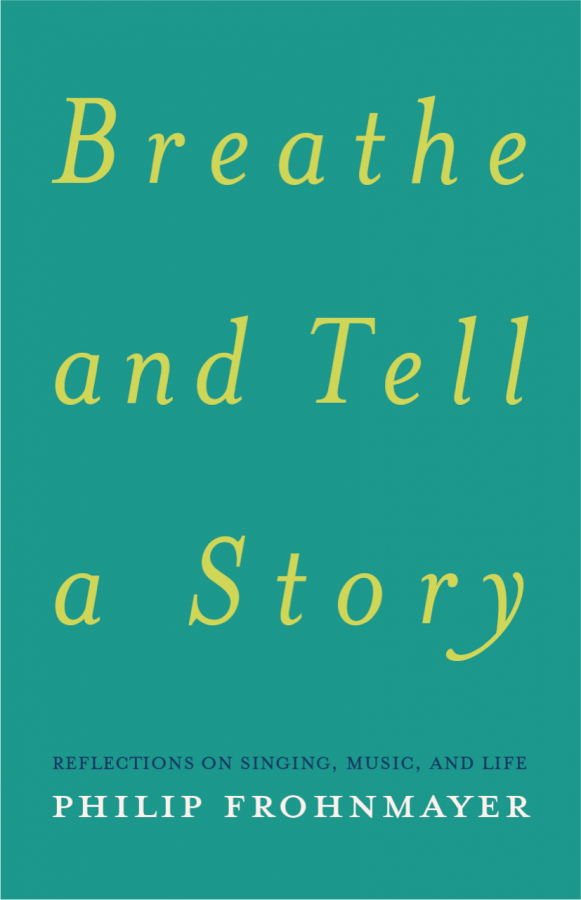“Breathe and Tell a Story:” A book review
September 28, 2020
Philip Frohnmayer had a storied life. The son of German immigrants, he studied English history and literature at Harvard University as well as singing at the University of Oregon and the State University of Music and Performing Arts Stuttgart in Germany. After winning the prestigious Munich International Competition in 1976, he enjoyed a flourishing career in Europe as an operatic baritone. On returning to the United States, he served as the chair for Loyola’s vocal faculty from 1982 to 2013, establishing himself as a renowned teacher of successful opera singers and vocal educators.
Frohnmayer’s students often encouraged him to write a book preserving for future generations his insights about singing and performing. He began this project in the autumn of 2004 by writing weekly essays that he shared with his students. “Breathe and Tell a Story” evolved from this work.
Reading this book is both practically useful and an experience of surpassing value. It is useful first and foremost for singers since it is filled with sound advice about all kinds of things: how to start a beautiful tone from the breath, how to prepare for an audition, how to work successfully with conductors, how to gain control of high notes, how to sing a beautiful line, how to practice effectively and how to face performance anxiety, to name just a few.
However, “Breathe and Tell a Story” is not just a book about the singing method; it is also a book of sage, almost fatherly advice to vocal students.
“Accept yourself where you are,” Frohnmayer counsels. “Begin by trying to do even better what you already do well. Practice assiduously, but also thoughtfully, listening carefully to yourself and investing in practice routines that lead to progress. Take care of yourself, remembering that your body is essential for what you are trying to do.” These are just some of many words of wisdom from the author.
Frohnmayer’s conversational writing style reads effortlessly. His expression of ideas is plainly put, often laced with sneaky wit.
“It isn’t just the voice, but the entire body that sings,” Frohnmayer remarks in his book.
Ideas such as these have value not only for singers but also for creative people in many fields who want to hone their skills of self-expression and self-representation.
As useful as the vast amount of practical advice in this book may be, the surpassing value of “Breathe and Tell a Story” lies in the human narratives that are woven into its pages. We meet Frohnmayer’s parents, his siblings, his wife and his daughter. We read vignettes of his college days, his time in Europe as an opera singer and his years of teaching at Loyola. We are privy to his musings about the importance of order in one’s life, the value of emotional commitment and the necessity of self-discipline. We walk with him through the chaos of Hurricane Katrina and, finally, through his struggle with mortal illness.
Reading his honest, searching letters, it dawns on us that, almost unaware, we have come to know Frohnmayer himself, and we realize that this is a precious knowing. We discover that his warmth, courage, strength and optimism are gifts of surpassing value intended for us.
“We need to open our eyes and ears when we go to work. We need to take responsibility for what we do,” Frohnmayer says in the book. Gifts indeed.
Many readers, whether singers or not, will come away from this book with the conviction that Frohnmayer was no ordinary man. Although I personally knew him for over 30 years, I did not appreciate his extraordinary qualities as I should have until I read these pages.
I commend “Breathe and Tell a Story” to all people, musicians and non-musicians alike who wish to follow their own callings and meet their own challenges with refreshed courage and passion.
I should add that proceeds from the sale of “Breathe and Tell a Story” (available through Amazon) will benefit the Frohnmayer Legacy Fund for vocal student scholarships at Loyola.








